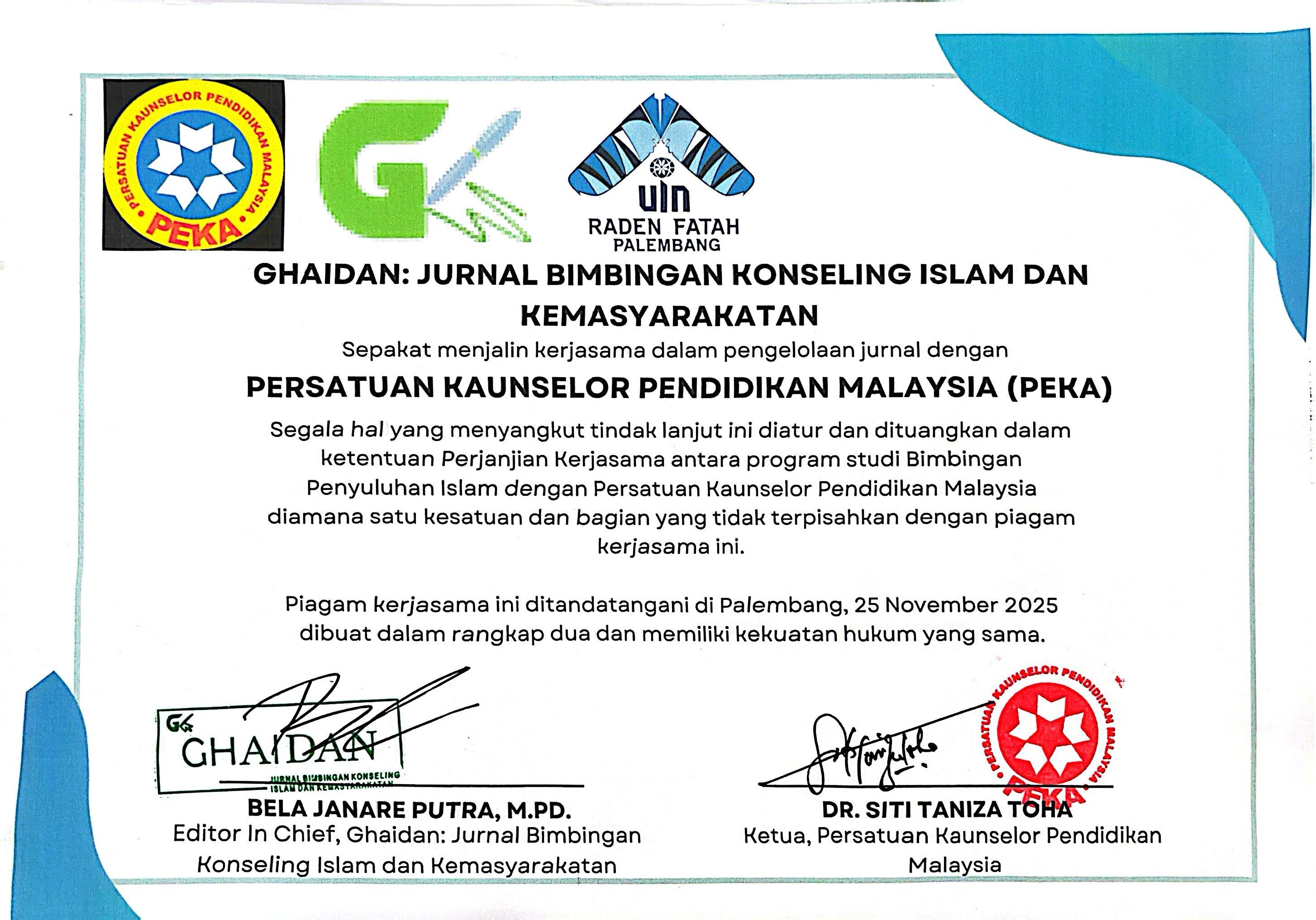Analisis Konseptual Mengenai Mental Hygiene dalam Perspektif Psikologi dan Islam Menurut Syamsu Yusuf
DOI:
https://doi.org/10.19109/ghaidan.v6i2.17982Abstract
Mental hygiene is the efforts made to achieve mental health (mental health). This study aims to determine the concept of mental hygiene in a psychological and Islamic perspective according to Syamsu Yusuf. This study uses library research methods, by analyzing the main book, namely the book "Mental hygiene (Development of mental health in the study of psychology and religion)" by Syamsu Yusuf. Then data analysis is done using content analysis, namely scientific analysis of the contents of the message. Through this research, the results show that (a) The concept of mental hygiene from a psychological perspective is the process of developing and applying practical principles aimed at humans in order to achieve psychological (mental) health and prevent the possibility of mental damage or maladjustment. (b) The concept of mental hygiene in an Islamic perspective is an individual's ability to control psychological functions, create adjustments for oneself, others, and the environment based on the Al-Quran and As-Sunah as a guide to life and provide guidance (budan) to achieve happiness in the world and the hereafter. In addition, Islam also acts as a therapy (healing) for someone who has a psychiatric disorder and assists humans in maintaining, maintaining, preventing psychiatric disorders and fostering mental health conditions.





